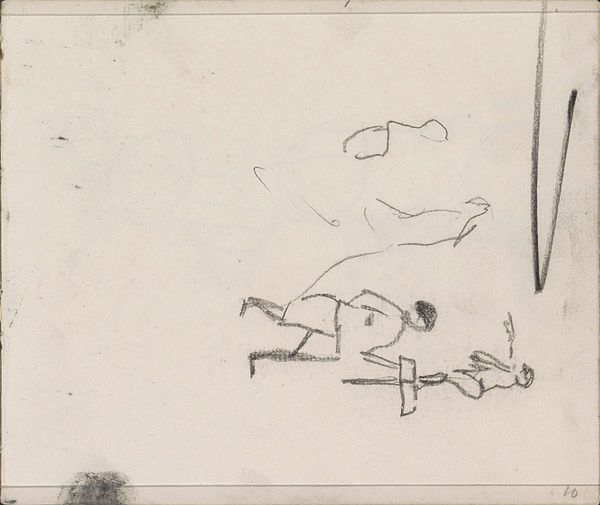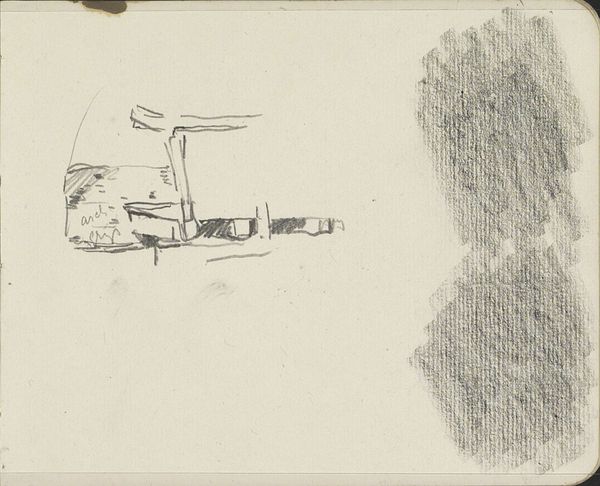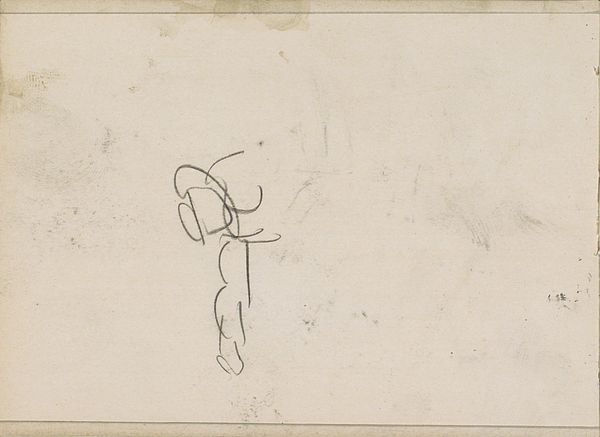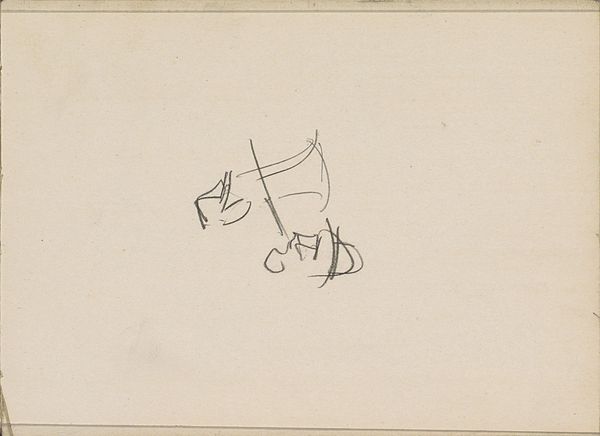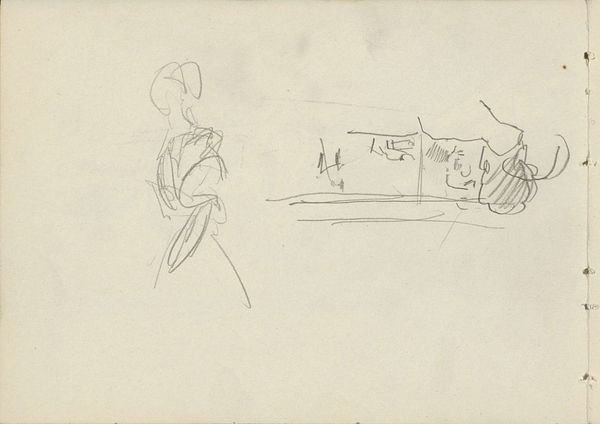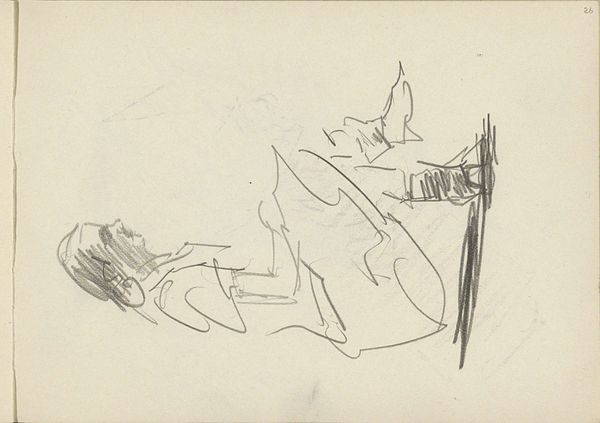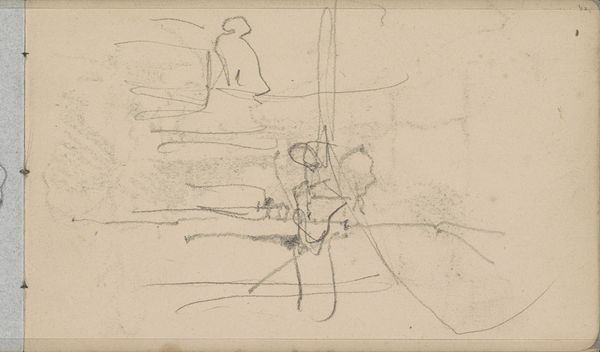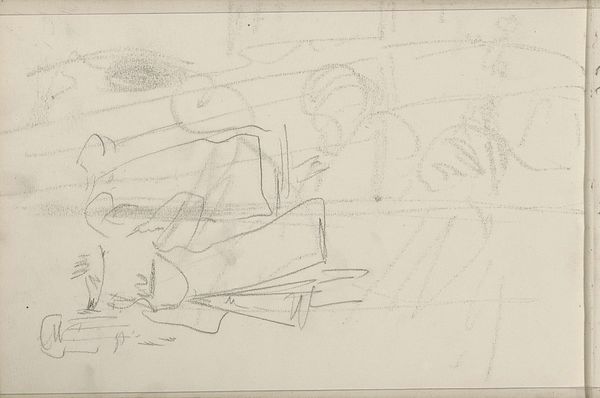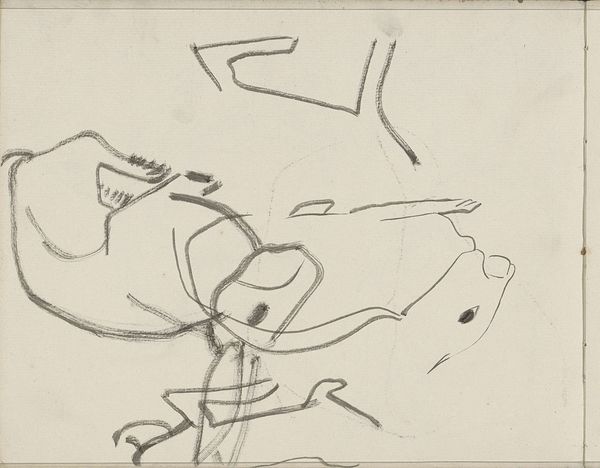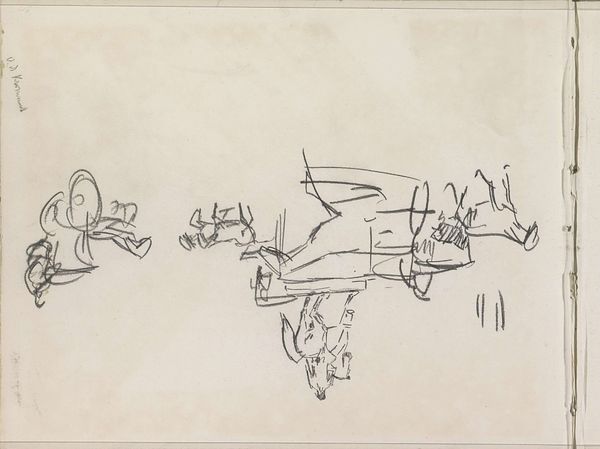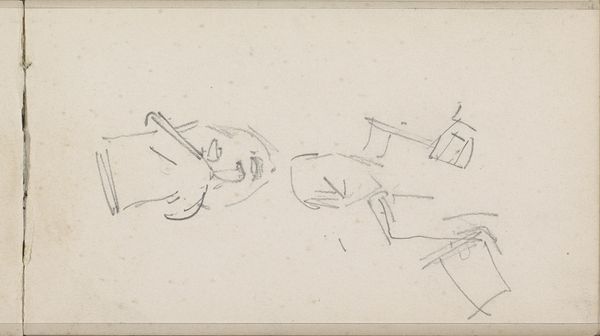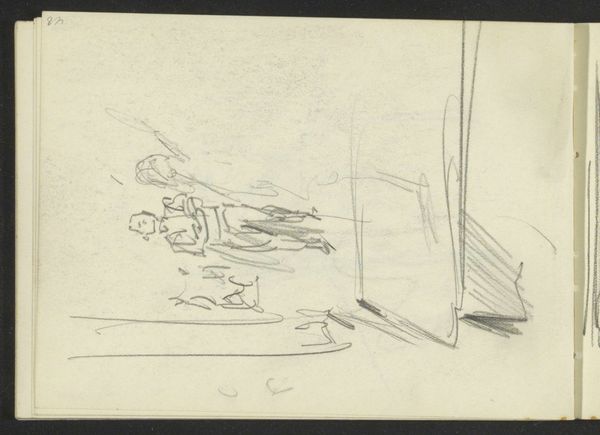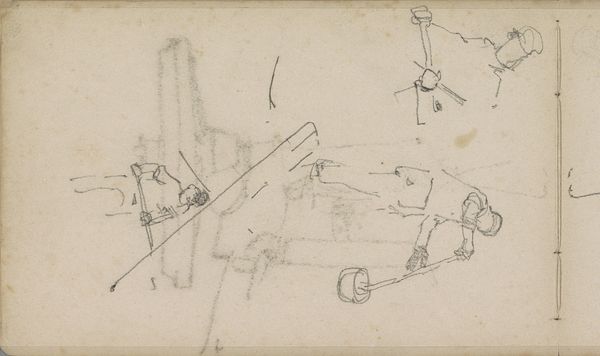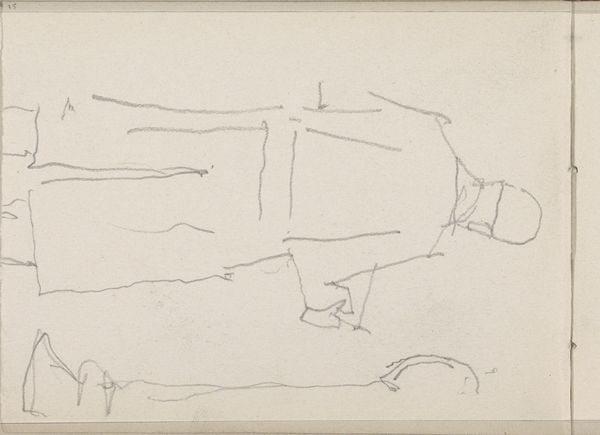
Copyright: Rijks Museum: Open Domain
Curator: What a wonderfully ephemeral feel to this sketch. Editor: Indeed! We’re looking at "Sitting Child on a Sled" by Carel Adolph Lion Cachet, created around 1896. It's a graphite and pencil drawing currently residing here at the Rijksmuseum. It reminds me of fleeting winter days, a snapshot of childhood joy. Curator: Precisely. I'm immediately drawn to the artist's technique. The evident light pencil work showcases the means of its production. Note the deliberate raw quality of the marks, revealing an early, potentially discarded work of draftsmanship that subverts more classical, polished forms. Editor: It really offers an unvarnished glimpse into the past. The very act of sketching like this situates the artist within a particular social sphere. He's likely from a background where such leisurely artistic pursuits were supported. How do you read the child’s positioning on the sled? It appears more precarious than comfortable. Curator: Interesting observation. Perhaps Cachet, through material economy and process, mirrors a transient childhood experience. The child is merely situated; this highlights both the social fabric and individual lives. Editor: Perhaps the sketchbook origin underscores the artist's own exploratory practice. I wonder how pieces like this were initially perceived, away from gallery displays. Curator: Excellent point. It emphasizes the evolving role of art within different consumption cycles. How perceptions shifted over time—from personal study to eventual museum display—shows the work acquiring new value layers. Editor: Indeed. What began as personal experimentation enters public dialogue, molded by its institutional context and societal expectations of art’s roles. Curator: In short, this initially ephemeral graphite sketch became a marker, mirroring broader social histories while retaining evidence of early creative processes. Editor: Leaving us with layers of meanings between production, societal norms, and evolving perceptions, all tied to a simple image. Curator: Precisely. It reminds us that context profoundly shapes reception, even for seemingly minor sketches.
Comments
No comments
Be the first to comment and join the conversation on the ultimate creative platform.
